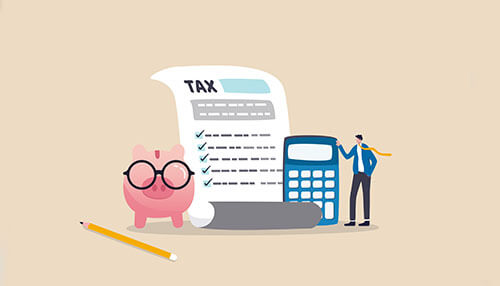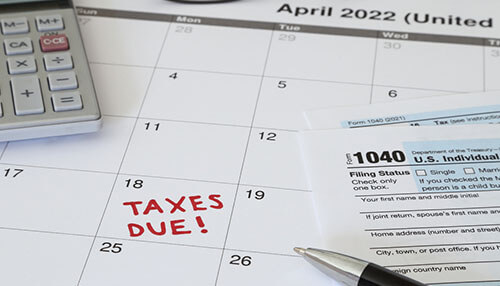Every business is required by law to file or report its financial particulars for tax purposes annually. Now, unless you’re the government, taxes aren’t anything to be thrilled about, regardless of the type of business structure you have or where you’re located. However, you still need to pay taxes no matter how you feel about them. This tax revenue is essential for the government to remain effective and operational.
Upon establishing your business, you need to get tax ID number. This number is crucial since it will be used by your company when filing taxes. Therefore, once you receive this number, it will always be associated with your company, and going forward, you must file taxes with the Internal Revenue Service (IRS).
However, be aware that making a mistake on your tax return could result in stiff fines. If companies aren’t attentive, they risk overlooking important aspects of tax law. Depending on your state or location, different rules or regulations may apply to tax reporting. To avoid making costly mistakes, it’s usually best to engage a tax professional or accountant to manage your taxes. Below are some common mistakes you should avoid when filing business taxes.
1. Underreporting Income
If you’re a business owner, you may feel tempted to misreport or underreport your income to dodge paying taxes. However, be aware that this position is unethical and will land you in a lot of trouble. Even if you unintentionally underreport your income, you could face harsh consequences, especially if the difference between the actual and reported amount is significant.
If you file taxes as a sole proprietor, partner, or S-corporation, you’re generally expected to pay quarterly, depending on your estimated annual tax bill. It’s not necessary to obtain the precise amount. However, it would be best if you had a reasonably accurate estimate.
You can hire an accountant to prepare this estimate for you, or you can do it yourself, although opting for the latter increases the likelihood of making mistakes. You risk paying a fee for underestimating and underpaying if you don’t make an accurate estimate. The IRS can penalize you on the grounds of negligence in reporting your income.
Reporting mistakes are more often deliberate than unintentional. Thus, you must aim to be accurate with your calculations and, above all, be honest.
2. Failing To File Specific Forms Or Payments
Depending on your business structure and industry, you must file and send different forms to the Internal Revenue Service (IRS). Additionally, you might need to send specific documents and paperwork to your local or state tax office. While certain taxes are done annually, others, like payroll and sales taxes, are usually filed quarterly.
Your company’s best course of action is to invest in accounting software and, if possible, a payroll management system that precisely tracks all financial transactions. It’s also a good idea to hire an accountant to handle all your financial matters and keep track of the annual tax calendar so you don’t miss the deadline for submitting your forms.
3. Mixing Business And Personal Expenses
This mistake is quite common among small business owners and sole proprietors. Things can get easily mixed up when you’re running your own business. But you should know that the IRS is strict about mixing funds. You must ensure that your business and personal expenses are separate because only business-related expenses can be deducted from your income. Additionally, you can also hire a wealth management advisor to help you better management of your finances. These Professionals can help you out with taxes, investments, and other money matters.
For this reason, you need to open a separate bank account for your company. Also, applying for a company credit card and using it for business transactions is advisable.
Furthermore, you must keep meticulous records when using personal assets for business purposes. If you use your house as an office, ensure that your documents are up to date to support your claim for home office deductions.
If you wish to take mileage deductions, you must have all relevant papers as proof. Bear in mind that you may face harsh consequences if you do not have adequate supporting paperwork.
4. Poor Record Keeping
Ideally, filing taxes should not be a last-minute endeavor. You may discover that you have been making terrible financial choices that could sink your firm after deducting your tax expenses. Additionally, you may find that you overlooked essential deductions. Therefore, businesses must do regular tax planning throughout the year. This is applicable even for companies that are required to file quarterly tax returns.
Every firm must have a system that tracks income and expenditure regularly. You risk missing critical details if you do this manually. Automating this process makes tracking much more efficient. Furthermore, it would be best if you reconciled your books every month. Fortunately, many tools are available to assist you in tracking your expenses.
5. Not Taking or Incorrectly Taking Deductions
When it comes to deductions, you should note that there may be differences in the deductions you’re eligible for based on your state. In addition, not all expenses are fully deductible. So, you need to be familiar with the list of deductible items and ensure that you deduct them properly. But you can get all this information from the IRS website.
You must deduct anything that is deductible from your expenses. However, you must follow the correct procedures because making deductions for non-deductible items may lead to harsh fines.
Additionally, incorrectly deducting costs for which you are eligible may have serious repercussions. To avoid making improper deductions, you need to seek the advice of a tax expert.
6. Not Disclosing Information To Your Accountant
Most businesses have a certified public accountant (CPA) who handles their taxes. This is the ideal situation because a CPA knows the ins and outs of tax filing. However, if your business fails to disclose all the financial records to the CPA, they’re bound to make mistakes when filing your taxes. This can be avoided by simply automating your accounting management system and being transparent.
Conclusion
Every business should take tax filing seriously because mistakes could prove costly. Don’t try to cut corners when filing your taxes. The best way to stay out of trouble is to be as organized as possible and be honest.
Furthermore, it would help if you were serious about financial planning to prevent out-of-control spending. Therefore, it’d be a great idea to have a tax expert on board to help you file your taxes.



